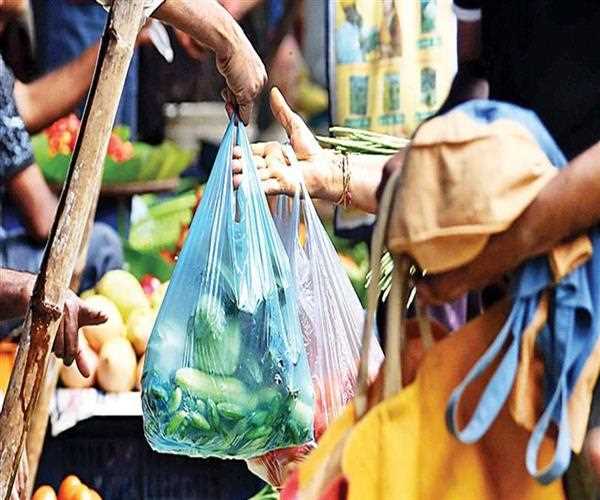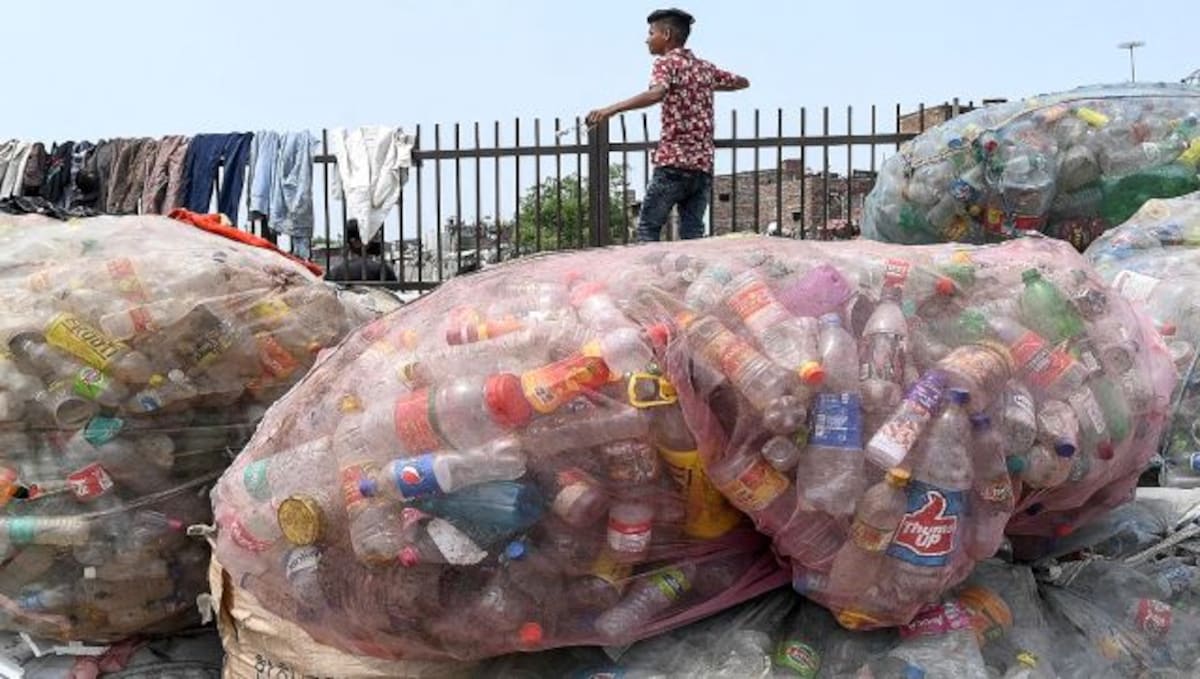
11-Jul-2022 , Updated on 7/12/2022 6:20:14 AM
India bans single-use plastic to combat pollution
As the world continues to face an increasing problem of plastic pollution, India has decided to ban single-use plastic items to help clean up the country's streets and waste disposal centers. The ban, which comes into effect on Friday, will apply to a variety of items, including straws, cigarette packets, plastic cutlery, and plates, among others.
While businesses opposed to the ban have warned of widespread disruptions, the government has dismissed these claims and asserted that the ban will only cause short-term discomfort. In addition to the ban on single-use plastic items, the government has also announced plans to create a waste-to-energy plant that will convert waste into energy.
So far, so good? Well, there are still some questions that need to be answered about this ban-what are the long-term consequences for Indian businesses, for example-but overall, it seems like a positive move that is bound to have a significant impact on pollution in India.
What is the ban on single-use plastics?
India is taking a stand against single-use plastic by banning the use of plastic products throughout the country. The ban, which is estimated to create 18,000 jobs and reduce imports by $2 billion annually, will go into effect on July 1, 2022. The main purpose of this ban is to reduce plastic waste that ends up in landfills and lakes, two of the world's most polluted and destructive environments. This government's decision is a great step in the right direction, and we hope that other nations will follow suit.

How will this ban be implemented?
It's no secret that plastic products are a major pollutant. This pollution has become a major concern in India, which has over 1.3 billion people. To combat this, the country has decided to ban single-use plastic products. This ban will be implemented in two ways: through taxes on single-use plastics and increased regulation of the production and sale of such materials.
The goal is to reduce the amount of waste generated by Indians each year, which in turn will help reduce pollution levels in the country and improve air quality overall. While this ban may seem like a daunting task, it's worth noting that India has been making significant progress in recent years in terms of waste management. So, with a little bit of effort, the ban on single-use plastic products can be successfully implemented.
Plastic pollution is a major problem in India
Plastic pollution is a major problem in India, and it's taking a toll on the environment. The Indian government has decided to ban single-use plastics to reduce this problem. This ban includes items like plastic bags, disposable chopsticks, straws, and cups. Everyone must follow this ban, as it could have far-reaching effects on the planet. Not only will this ban help protect wildlife and humans from health problems caused by plastic waste, but it will also help reduce plastic waste in landfills. Keep up the good work, India!
Single-use plastics are creating a pollution problem in India
The Indian government has decided to ban the manufacture and sale of single-use plastic items to clean up the country's air. This ban is a step in the right direction, as single-use plastics are creating a major pollution problem. This measure will help decrease pollution levels as well as save natural resources. Everyone must participate in this campaign by reducing their use of single-use plastics. Not only will this help the environment, but it will also save you money in the long run.

A ban on single-use plastic has severe consequences for Indian businesses
To reduce pollution levels in India, the government has announced a ban on single-use plastic products. This ban has had severe consequences for businesses operating in the country. There have been reports of protests and riots as a result of the ban, with people protesting against heavy taxation on plastics. Without plastic products, it will be difficult for businesses to survive.
It's important to remember that the ban is only in place for single-use plastic products; products that are used once and then thrown away will still be allowed. Let's hope that by reducing pollution levels in this way, the ban on single-use plastic products will be successful in reducing pollution levels in India.
What are the pros and cons of the ban on single-use plastics in India?
India has announced a ban on single-use plastic products, which is a step in the right direction to cleaning up the country's environment. The ban has many benefits, including reducing pollution and helping the environment. There are some cons to this decision, such as a decrease in inconvenience for people who use plastic products. It will take time for the Indian population to adapt to the new rules, so temporary measures may be necessary for the meantime. However, overall, this ban is a positive and long overdue move.

Opposing views on the ban on single-use plastics
Single-use plastic items are becoming a problem not just in India but in many parts of the world. Not only are they a waste of resources, but they also cause pollution and harm the environment. To reduce pollution and protect the environment, India has decided to ban single-use plastic items. While there are also concerns about how well the ban will be enforced, supporters of the ban argue that it's necessary to reduce pollution and help protect the environment. Critics of the ban say that the price of items such as food will increase and that people will be forced to use fewer plastic products. The ban on single-use plastic items in India is receiving mixed reactions from the public. Some people are supportive of the policy, while others are concerned about the potential implications.
FAQs
How will this ban on single-use plastic affect people's everyday lives?
The ban on single-use plastic will affect people's everyday lives in a few ways. First, it will reduce the amount of plastic waste that ends up in landfills. Second, it will make it more difficult for companies to produce and sell single-use plastic products. Third, it will require people to waste less plastic when they're shopping and waste less plastic when they're recycling. Finally, the ban may encourage people to use reusable bags and containers instead of single-use plastic items.
What are some of the potential problems that may occur as a result of this ban on single-use plastic?
-The ban on single-use plastic could create environmental problems, as plastic waste may not be correctly disposed of. The ban could also lead to economic problems, as businesses may find it more difficult to source products that are made using single-use plastic.
What is the plan to combat pollution in India?
The Indian government has pledged to make pollution control a top priority and is currently implementing several programs aimed at reducing smog and other pollutants. One such program, the National Clean Air Programme, was launched in 2006 and aims to reduce air pollution levels by 25–30% by 2020.
Are there any other reasons why you should care about this news story involving India and pollution?
There are several reasons why people should care about the pollution news story involving India. Pollution from India's factories and cars is causing significant damage to the country's environment, and the country's government is struggling to address the pollution problem. Additionally, India is one of the world's most populous countries, and its population will continue to grow rapidly in the coming years. Thus, India's pollution problem will become increasingly significant.
Conclusion
India has taken a significant step in the right direction by banning single-use plastic. Not only is this ban a necessary measure to combat pollution, but it also has significant business consequences for those who do not comply. While some argue that the ban will have negative consequences on the Indian economy, others feel that it is a necessary step in the right direction. Let us know your thoughts on the ban on single-use plastic in the comments below.
Also Read: Plastic engulfing Earth

Student
Hello, I am a mechanical engineering student from Delhi Technological University. I've written articles, journals, and social media postings for "Panache"—The Fashion Society of DTU, MindStick Software Private Limited, Zayuche LLP, and OtakuKart. I learned more about the subject through researching it, which has aided my growth.
Comments
Join Our Newsletter
Subscribe to our newsletter to receive emails about new views posts, releases and updates.
Copyright 2010 - 2026 MindStick Software Pvt. Ltd. All Rights Reserved Privacy Policy | Terms & Conditions | Cookie Policy